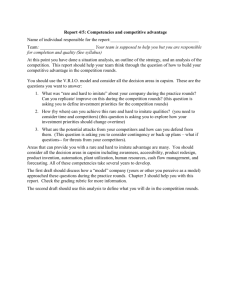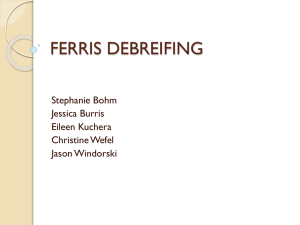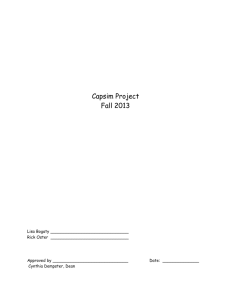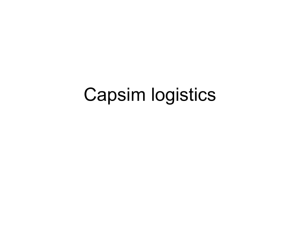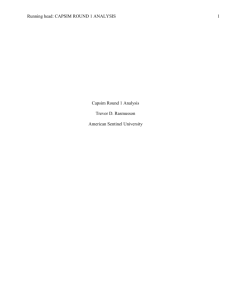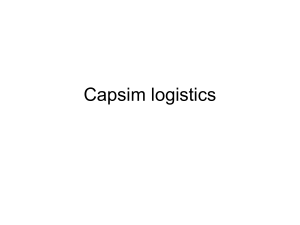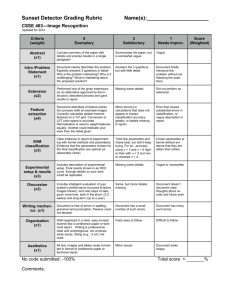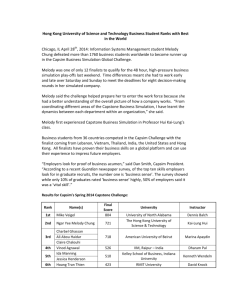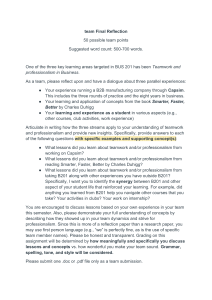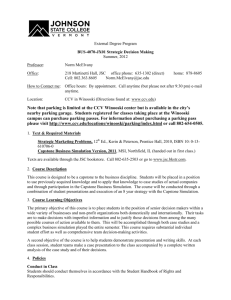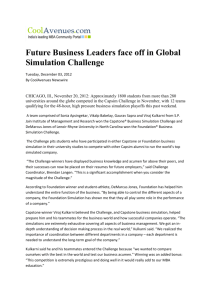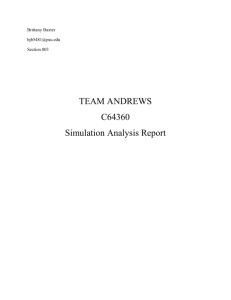Guidelines
advertisement
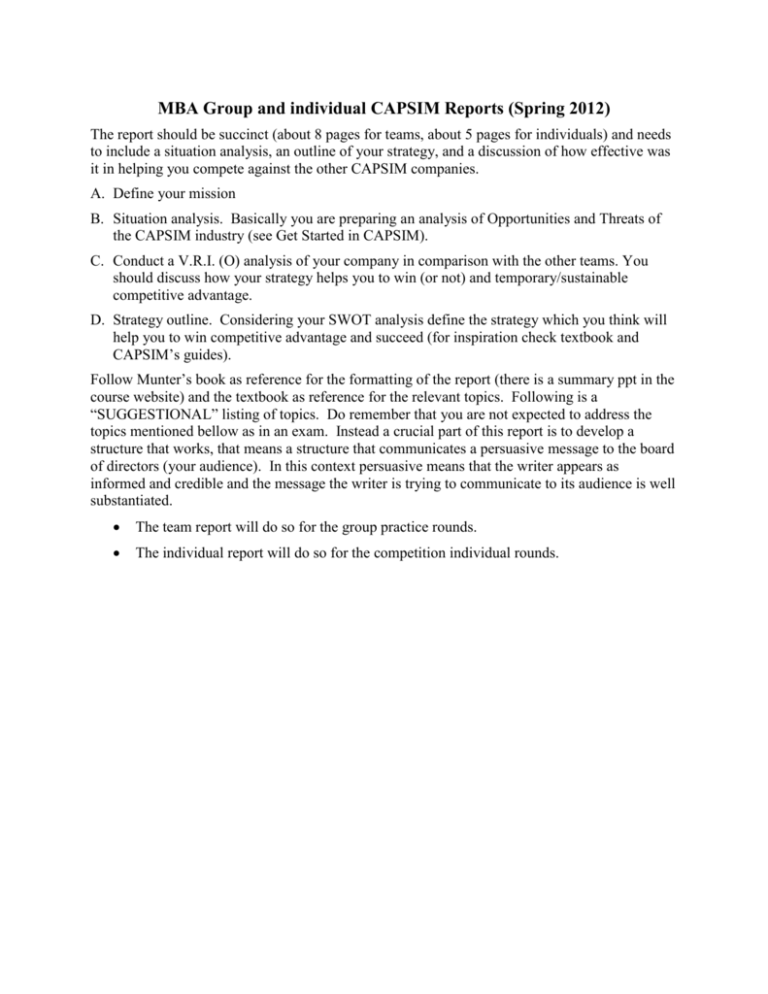
MBA Group and individual CAPSIM Reports (Spring 2012) The report should be succinct (about 8 pages for teams, about 5 pages for individuals) and needs to include a situation analysis, an outline of your strategy, and a discussion of how effective was it in helping you compete against the other CAPSIM companies. A. Define your mission B. Situation analysis. Basically you are preparing an analysis of Opportunities and Threats of the CAPSIM industry (see Get Started in CAPSIM). C. Conduct a V.R.I. (O) analysis of your company in comparison with the other teams. You should discuss how your strategy helps you to win (or not) and temporary/sustainable competitive advantage. D. Strategy outline. Considering your SWOT analysis define the strategy which you think will help you to win competitive advantage and succeed (for inspiration check textbook and CAPSIM’s guides). Follow Munter’s book as reference for the formatting of the report (there is a summary ppt in the course website) and the textbook as reference for the relevant topics. Following is a “SUGGESTIONAL” listing of topics. Do remember that you are not expected to address the topics mentioned bellow as in an exam. Instead a crucial part of this report is to develop a structure that works, that means a structure that communicates a persuasive message to the board of directors (your audience). In this context persuasive means that the writer appears as informed and credible and the message the writer is trying to communicate to its audience is well substantiated. The team report will do so for the group practice rounds. The individual report will do so for the competition individual rounds. Grading rubric 1. Opening paragraph a. Presents issue(s) and choice point(s) motivating the analysis, for example (what follows is not a recipe): a brief statement of what strategy you followed and how it has helped you define what you will during the competition rounds b. Lists briefly the primary reasons for your choice. c. Provides a useful roadmap (outline) for reading the report, not just a vague list POINTS Very vague and/or wrong topic 2.5 2. Clear and incisive 7.5 10 Very incomplete and vague Incomplete Complete but vague and unclear Clear and incisive 7.5 15 22.5 30 Conclusion reiterates in a way that enhances the memo’s persuasiveness and reader’s confidence on the recommendation a. It re-states your first statement at the light of what you have discussed. It gives a glimpse of the strategic options this analysis implies. prioritizes recommended actions b. It states recommended first steps. POINTS Very vague and/or wrong topic 2.5 4. 5 Complete but unclear Body of the report it addresses a sufficient number of the topics stated in the assignment in a way that makes sense (connects with the introduction and provides enough and convincing arguments to support the issue motivating the analysis stated in the introduction). It uses information from the courier, student’s guide, and/ or manager’s guide. It analyzes the information selected with a critical eye. It must, of course, follow the roadmap or outline provided in the introduction. POINTS 3. Incomplete Incomplete 5 Complete but unclear 7.5 Clear and incisive 10 Document Design (follows Munter’s guide) a. Use of stand-alone nutshell idea headings. Example of WRONG heading: External analysis. RIGHT heading Rivalry in the sensors market is likely to be high. What is the difference? The first is descriptive and gives no information. The second one provides information derived from the external analysis. Of course, this information needs to be discussed in the paragraphs under this heading. b. Use of white space, indentations, bullets, etc. POINTS Does not follow guidelines 2.5 Follows guidelines partially 8 OK Great design 14 20 Failing grade D – C range B range 0 to 20 21 to 45 46 to 60 A range TOTALS 61 and up
